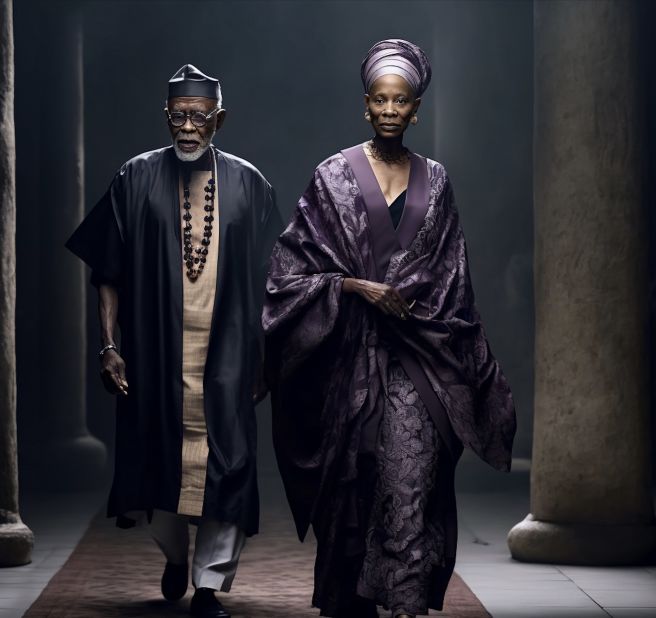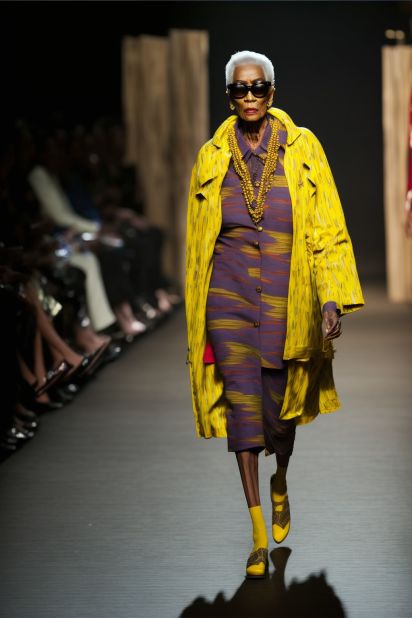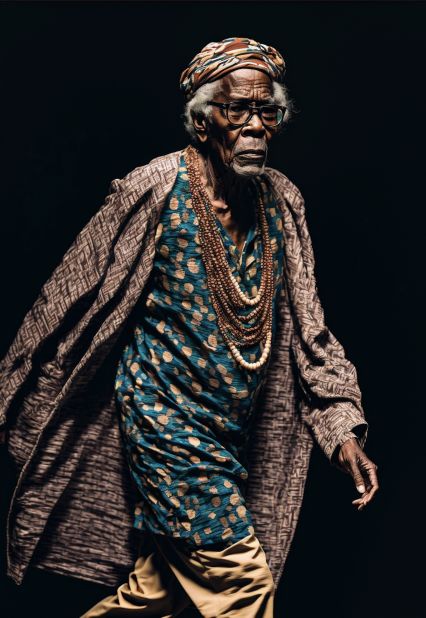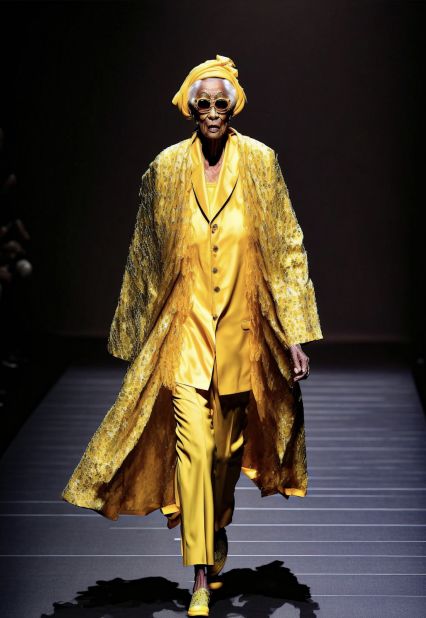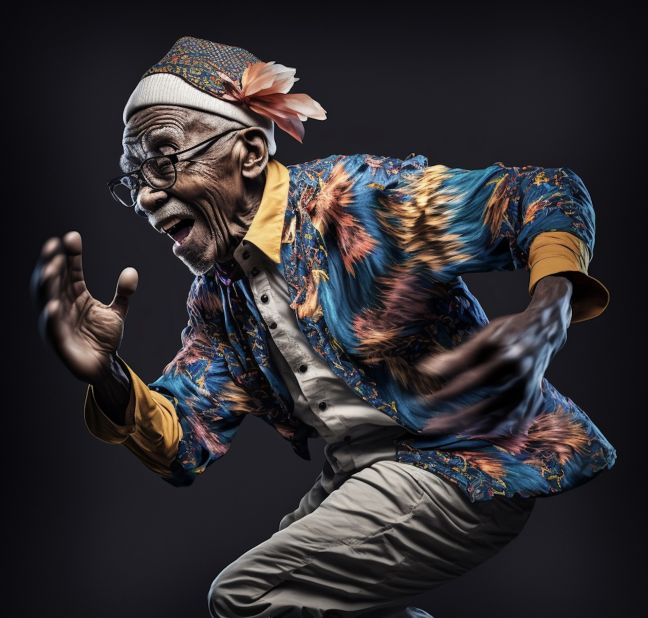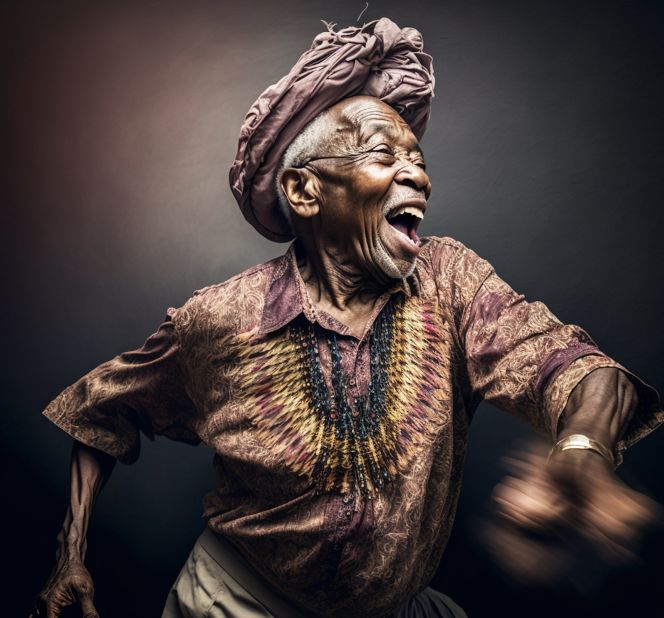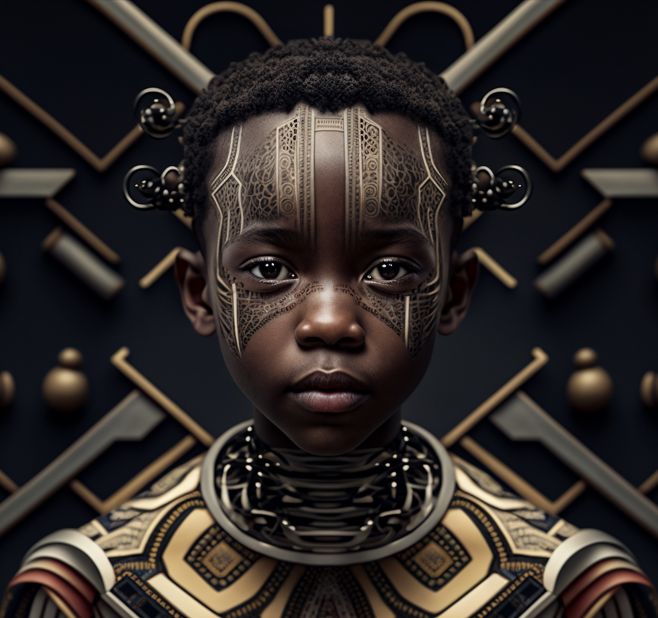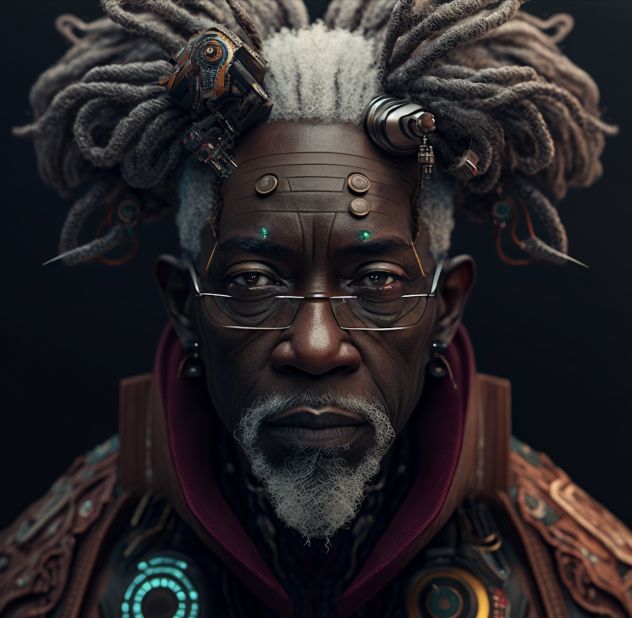A fashion show that features elderly people as models is a rarity. One with elderly Black African models is even rarer.
Perhaps that’s why Nigerian visual artist Malik Afegbua got so much attention from around the world when he posted images on social media last month showing seniors on a fashion runway, draped in stylish, colorful clothes.
Titled “The Elders Series,” the images challenge stereotypes around how older people are perceived, as well as foregrounding African faces and bodies, which have often been at the periphery of the fashion world.
“The inspiration behind (this series) was my mum,” explained Afegbua, 38. “She had a stroke, and I am very close to my mum. I just needed an outlet to find a way to express myself and not think about her on a life-support machine. I wanted to think about her in a happy place.”
But what’s truly remarkable about the images is that the ground-breaking fashion show never actually took place. While the images look like photographs of a genuine event, they were entirely generated by artificial intelligence (AI).
“You keep going to different depths”
Twelve years ago, Afegbua was an amateur photographer and visual artist when he received a Canon camera as a gift. He says it gave him the opportunity to start producing videos, and as a self-taught filmmaker he has gone on to create numerous movies and corporate videos. He produced series two and three of Netflix show “Made By Design,” as well as a biopic docudrama on Nigerian designer Nike Davies-Okundaye.
“The Elders Series” is an extension of other projects that Afegbua has created through AI. He uses the AI platform Midjourney, which generates images in response to text prompts. Afegbua says he experiments with different phrases, refining his search terms until he gets an image he likes, and then edits it in Photoshop – repeating the process until he achieves the effect he’s looking for.
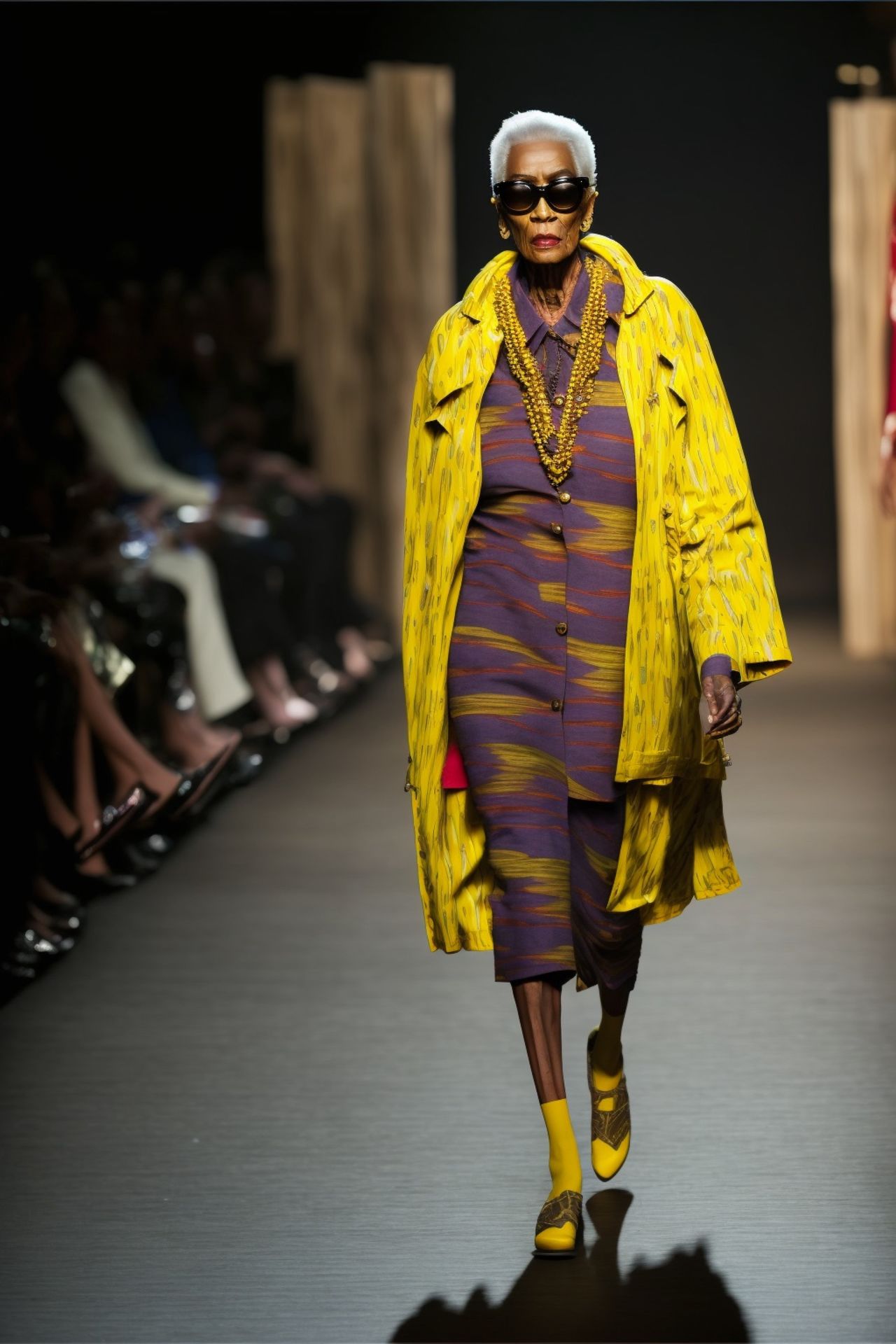
“When it comes to AI, you put in a text prompt, it gives you something random – you keep going to different depths until you find what you want,” he said.
There has been much controversy over racial and gender bias in AI. Facial recognition technology can be less accurate for Black skin than White, and AI systems to spot skin cancer have been found to be trained predominantly on White skin. It’s also been noted that AI art platforms can produce pictures that reflect the cultural biases of images found on the internet.
Afegbua said that until his mother’s stroke, he had only worked experimentally with images of Black people on AI platforms, but he found that the images they produced were “mangled up and not very good.”
He noticed that the images produced of Black Americans were different than those of Black Africans. “When you put ‘African’ they look less dapper and in a less nice environment,” Afegbua explained.
Through repeated searches using variations of his text prompts, he says he was able to train the AI and improve the images it produced of Black people. “Now anyone can go into the AI and put ‘a Black man in a fashion show’ and you are going to get something like what I did, because it’s now in the system,” he said. “Because I’ve done it, the system now has that data.”
“There is always a human being behind it”
Afegbua believes AI can be a powerful tool for the arts – film and television in particular. “It’s here to stay … it’s going to evolve and it’s going to get better,” he said. But he says the role of a human creator is still key. “AI is not All. It can’t think by itself, there is always a human being behind it regardless – to put things in motion,” he added.
His other AI projects include creating a virtual futuristic city called “Ngochola,” populated by people who are heroic, beautiful and African. Afegbua says he wanted the city to reflect ancient African civilizations, and “the power that technology would play in that society” if it weren’t for colonialism. But it is “The Elders Series” that has got him the most attention.
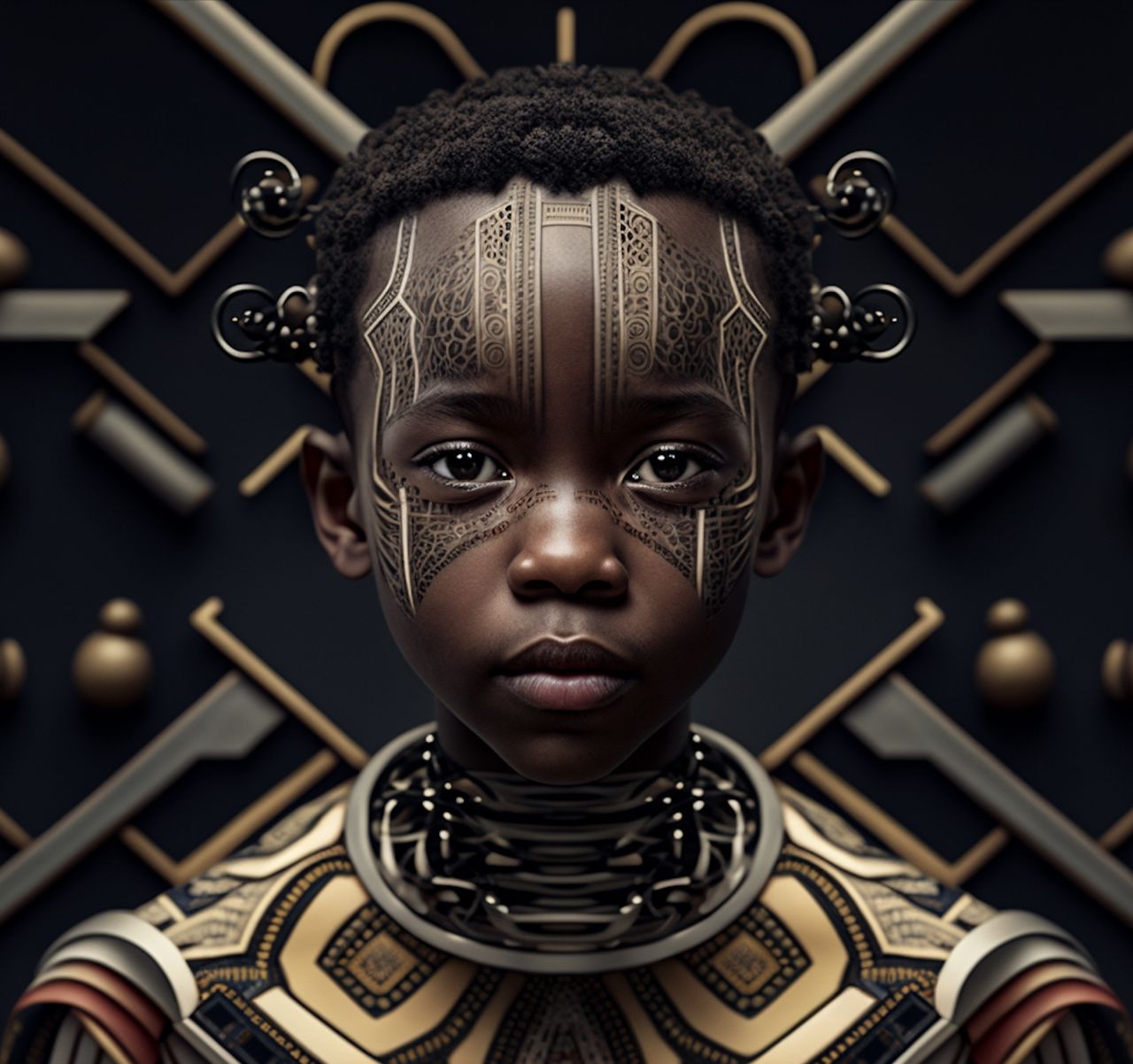
Afegbua says that since he shared the images he has been invited to exhibit his work at galleries in the US, France and Brazil, and has signed a deal to work on a Hollywood movie. But perhaps more rewarding is the recognition he’s received for presenting older people in a positive light.
“I’ve had many associations that have to do with the elderly contact me asking how we can collaborate,” he said, adding that the World Health Organization had been in touch to tell him that it views his work as “a major, positive contributor in the global effort by the WHO/UN’s Decade of Healthy Ageing in combatting ageism.”
“I didn’t think it was going to resonate with the world like that,” Afegbua said. “I am glad that people are starting to have that conversation.”
